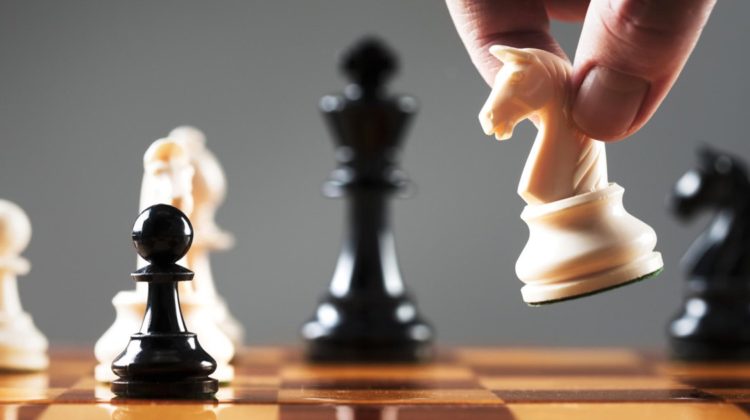
To be a good chess player means to have a good working memory, spatial memory, focus, attention, having the ability to sustain spatial calculations in your mind for prolonged periods of time. Of course, the more you play the game, the more patterns you start to develop and you develop a subconscious feel for a game, but for a pure beginner and for chess players of any level, the above mental faculties I mentioned is the ‘ground’ upon which the game is played.
Of course, the game of chess can also be abstract, due to the chess notations, but again the chess notations are basically the locations of squares in a game. That is why, no matter what other people say, chess is always a spatial game, and it relies a lot on visual memory, whether you are looking at the board or not looking at it.
Numbers, in my opinion, are abstract. The number ‘1’ doesn’t really exist, it is really an abstract idea that our mind has created.
Also, remember a mathematician is different from a human calculator. A mathematician ‘develops’ mathematical patterns, he is not necessarily a number cruncher. If he is nota mathematical researcher, then probably he is a teacher or may be he ‘applies’ his knowledge of mathematics for a company to solve their problems. Not more than that.
So here’s the bottom line-
if you throw at a mathematician a random question like-
what is 443.5 divided by 42142.24124124, then probably he won’t be able to do such calculation in within a few seconds, and he doesn’t need to. He is not necessarily a Shakuntala Devi or other such human calculators.
Becoming a chess player, however, is basically about carrying out such calculations but only in a spatial dimension.
That is why Programs like Stockfish are able to beat humans due to the number of calculations that they can do per second.
Of course, top human chess players do not rely on that, but rather they supplement it with a combination of pattern recognition out of years of study of the behavior of the game, experience, long term memory ( if you watch the commentaries of chess players like Yasser Serawan, he is like- this is a position similar to 1992 tournament x y z Kasparov vs Nigel Short), along with their superb spatial intelligence and memory (by which they can even play blindfolds), deep understanding of principles ( It’s one thing to know, F= ma, or the law of inertia, law of opposite action, and it’s another thing to deeply understand it and use it solve the entirety of the field of mechanics on the basis of these 3 principles alone) The human mind, from an evolutionary standpoint is not designed for computation like the one done by stockfish.
Along with that, they need a mind strong enough to have a presence of mind for prolonged periods of time. That is why even great chess players like Carlsen can sometimes miss out a simple fork or something in a very tight bullet or blitz game, not because they don’t know what a fork or skewer is, but because it’s very difficult to keep your focus and notice each and every pattern, continuously, for 6–7 hours of the gameplay and that too week after week.
Both Maths and Chess require you to have a superb cognitive intelligence, but the difference is that in Mathematics if you slack off you are not going to ‘lose’ to anyone.
In chess, however, no matter how many books you have studied, games you have played, principles and tactics that you know, you will have to maintain your focus for every 30–40 positions that arise in the course of the game, and if you slack off even once and make one wrong mistake suddenly you will be losing a game which you were almost about to win.
